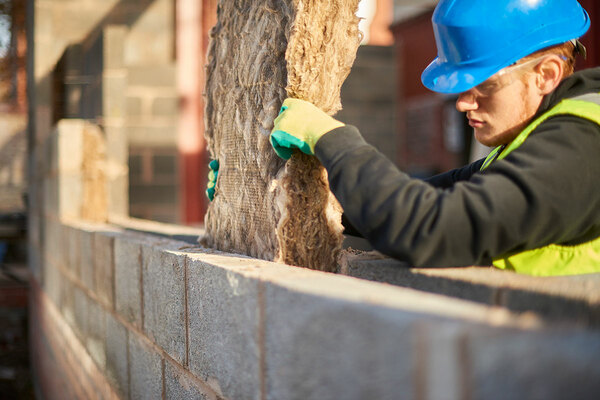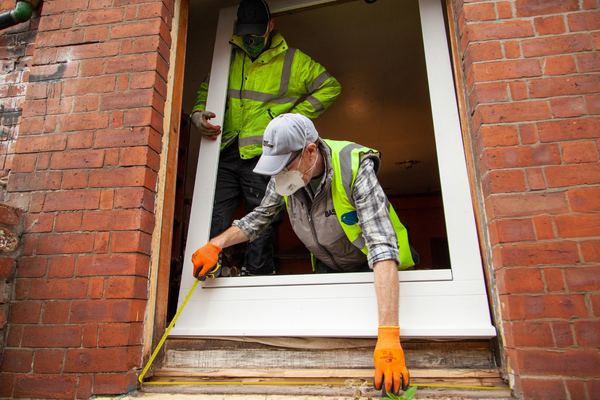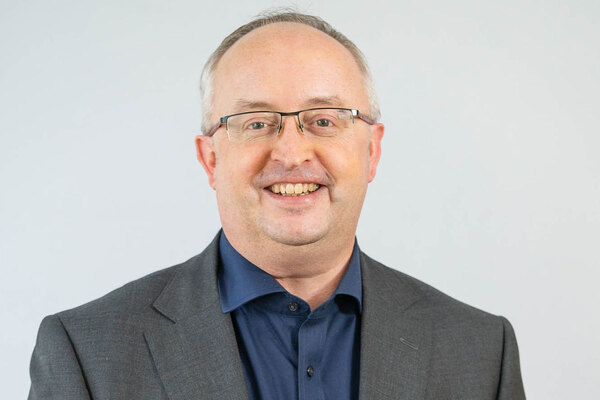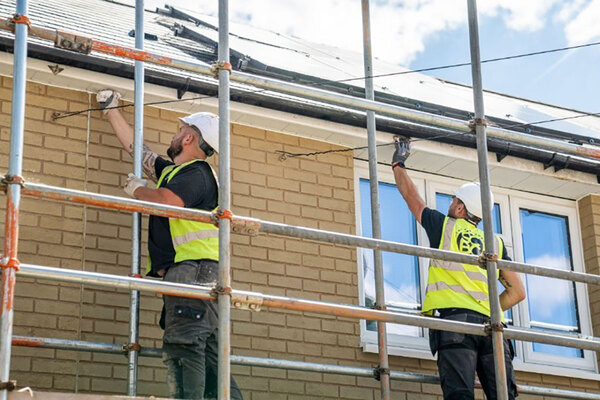Reaching net zero carbon targets: how to fund and identify stock to retrofit
With one in six homes considered uneconomical to upgrade, it can be tricky for social landlords to know which homes to retrofit. An Inside Housing webinar, sponsored by Daikin, facilitated conversations about how to plan and fund a retrofit programme
The UK housing sector manages five million properties and housing accounts for around 14% of greenhouse gases, according to the Committee on Climate Change. The sector can make a huge difference as we work towards the target of reducing emissions by 24% by 2030.
The £160m first round of the Social Housing Decarbonisation Fund – now closed – is estimated to be able to fund upgrades of 38,000 social homes.
However, with one in six homes considered uneconomical to upgrade, it can be difficult for social landlords to identify what stock is suitable to retrofit and what work to do first towards the 2050 target.
Renewable heat sources are high on the agenda as gas will cease to be installed in new builds from 2025 and the prime minister’s 10-point plan sets out an ambition to install 600,000 heat pumps a year by 2028.
Inside Housing’s webinar, sponsored by Daikin, discussed how to secure finance, navigate the application process, assemble a plan for upgrading properties for 2030 targets, and how to gain support and collaborate.
Inside Housing and Daikin webinar: participants
Guy Woodroffe, policy lead for the Social Housing Decarbonisation Fund, Department for Business, Energy & Industrial Strategy
Guy Woodroffe is the policy lead for the Social Housing Decarbonisation Fund. Mr Woodroffe joined BEIS just over a year ago, from the Ministry of Defence. He has a background in strategy and policy, with experience of delivering policy, research and development, innovation and strategic change across a number of sectors including transport, defence and now social housing.
Nick Huston, future energy business manager, Daikin UK
Nick Huston has worked in senior roles across the housing sector for more than 25 years, both for local authorities and housing organisations, mainly in the sustainability, energy, environmental and asset management fields.
More recently he worked as a director at charity NEA managing a £26m Redress fund on behalf of Ofgem and central government. This involved working on more than 100 projects across the UK, working with social landlords to deliver energy improvements to more than 8,500 homes.
For the past three years, Mr Huston has been working with Daikin UK, working closely with BEIS and key partners on a variety of low-carbon and innovative projects. His main work involves supporting local authorities and housing organisations, raising awareness of new government policies, key areas of growth, funding opportunities, and providing access to free training and upskilling opportunities.
Rose Bean, interim director of assets and sustainability, Abri Group
With more than 16 years of experience in housing, Rose Bean drives Abri’s strategic responsibilities for asset, sustainability and regeneration programmes.
She is a great advocate for climate change and dedicated to enhancing the level of carbon literacy across the organisation. Ms Bean regularly researches new theories and concepts to empower us to build homes and communities that are safer and smarter.
She has led on numerous projects from delivering and implementing change on fuel poverty, piloting trials on renewable technology to introducing a culture of low-carbon thinking at Abri.
David Lewis, executive director of assets, ClwydAlyn
David Lewis joined ClwydAlyn in 1991 as an apprentice heating and plumbing engineer. After completing his apprenticeship in 1995 he undertook a variety of maintenance-related roles, becoming building services manager in March 2013.
In late 2014 Mr Lewis became managing director of ClwydAlyn’s specialist in-house maintenance firm, and in early 2015 he was appointed executive director of asset management, responsible for repairs and maintenance as well as asset management.
As well as gaining frontline and strategic management experience over the years, he has gained a BSc in building maintenance management and the NEBOSH health and safety and environmental qualifications. Mr Lewis is a member of BIFM and actively participates in national forums and localised focus groups around the decarbonisation agenda. He is passionate about making a difference in a challenging environment.
Sign up for our asset management and sustainability newsletter
Already have an account? Click here to manage your newsletters








